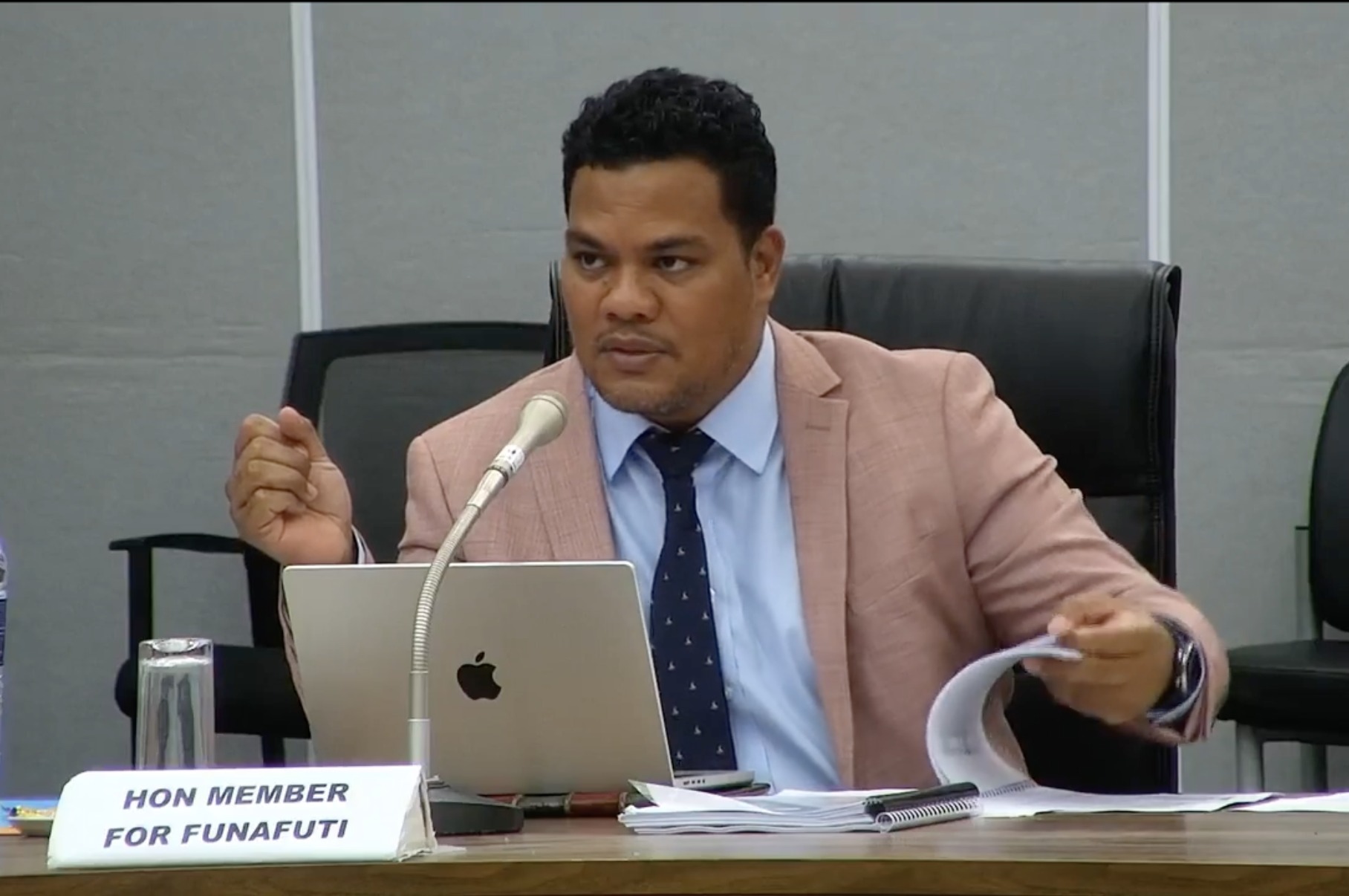Tuvalu’s Parliament has unanimously approved the proposed Constitution of Tuvalu Bill 2023 – endorsing 26 amendments proposed by the Parliamentary Review Committee led by former foreign affairs minister, Simon Kofe.
Announcing the historical moment on his social media page, Kofe said a special two-day session of the Tuvalu Parliament early this month endorsed the amendment bill, “with all the Members of Parliament united in supporting the new Constitution.”
“It is now officially the Constitution of Tuvalu Act of 2023. Mark your calendars. This Act will commence on 1st October 2023, which also marks the 45th Anniversary of Tuvalu’s Independence, said Kofe on his Facebook page.
“I want to extend a heartfelt Thank You to everyone who made this possible: The Constitutional Review Committee, all officials who provided invaluable support, past and current members of Parliament, last but not least, you, the people of Tuvalu—for sharing your thoughts and perspectives and entrusting to us this monumental task, said Kofe.
The new amended Constitution comes into effect on Sunday, 01 October 2023.
One of the new additions to the Constitution is the inclusion of a new section on vote of no confidence. There is currently no stand-alone section in the Tuvalu Constitution to regulate a vote of no confidence.
“A lack of regulation on when the vote of no confidence is used to destabilise government and lead to frequent turn-over, especially for governments that are new or nearing the end of their Parliamentary term, said the Constitution Review Committee in their recommendation.
“The underlying principles are the stability and effectively functioning of government.”
The Committee proposed a new Section 113 under Vote of No Confidence – allowing Parliament to pass a motion of no confidence in the government with the support of the votes of a majority of the total membership of Parliament. The vote cannot be held within the first 12 months of the life of Parliament from the date of the recent general election and during the last 12 months of government, before a dissolution of Parliament.
The amended Constitution also includes a set process for the selection of the island nation’s Governor General. There are currently no set criteria that allows all islands equal opportunity to have a representative serve in the highest office of the land.
The Committee recommended an amendment to Section 55 of the Constitution and a new Schedule 7 that outlines the order of rotation for appointment of the Governor General.
“Given the importance of island representation in Tuvalu, it is critical that a more equitable rotation system be implemented to allow all islands to have a representative serve as Governor General in a reasonable time, said the Constitution Review Committee.
The order of the rotation will be from south to north islands in Tuvalu. In making his nomination, the Prime Minister will consult the Falekaupule or island council of the relevant island.
The Constitution specifically names the islands as Nanumea, Nanumaga, Niutao, Nui, Vaitupu, Nukufetau, Funafuti and Nukulaelae.
Another change in the Constitution is the removal of the reference to the late Queen Elizabeth II as the Sovereign of Tuvalu. Instead Section 48 has now been amended to include a more generic reference to the Sovereign of Tuvalu that can apply to any successor of the Crown.
“In the Constitution, the Sovereign of Tuvalu will not specifically refer to Queen Elizabeth II, instead all successors to the Crown will be covered under Section 48, recommended the Constitution Review Committee.
The review of the Constitution was carried out by a five-member Parliamentary Select Committee, led by former Foreign Affairs Minister, Simon Kofe.
SOURCE: PACNEWS














